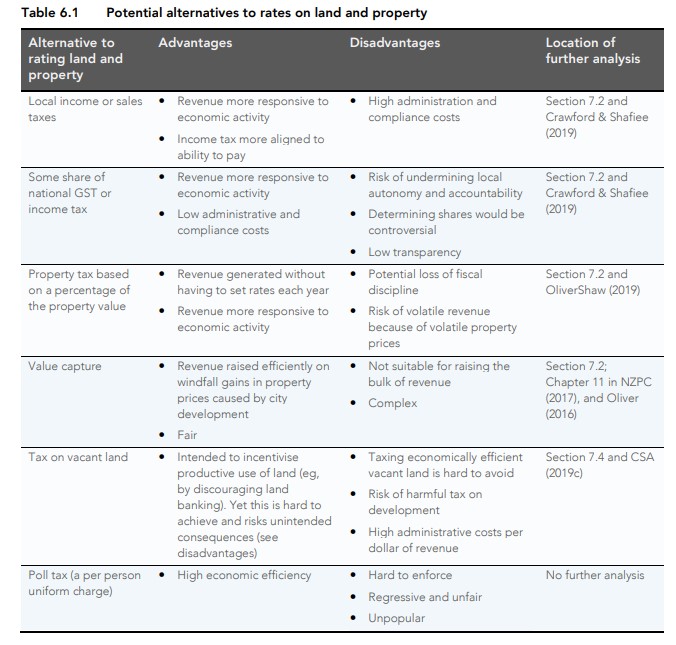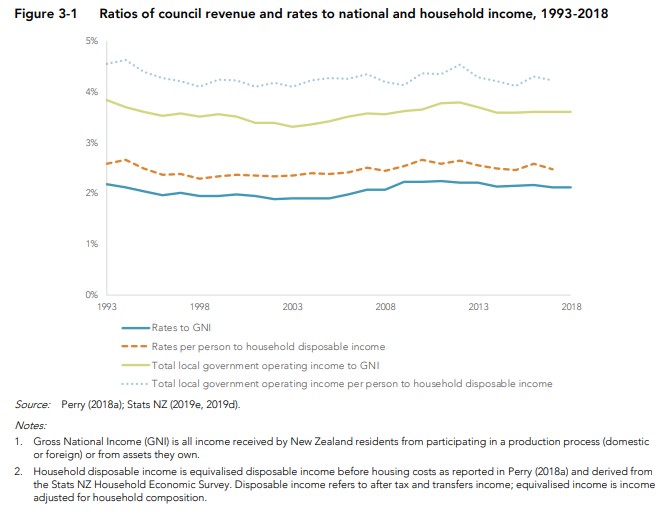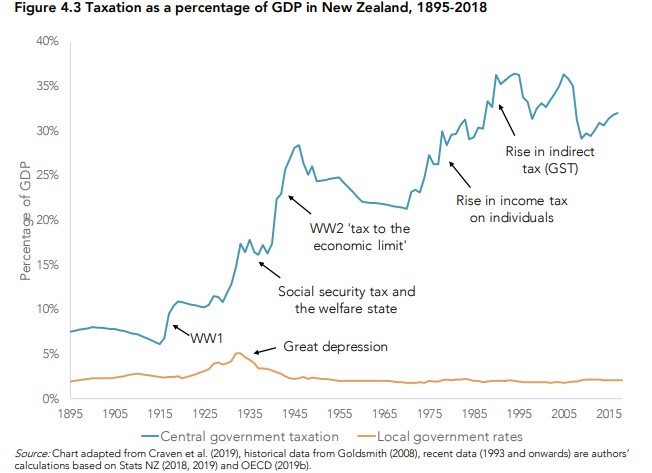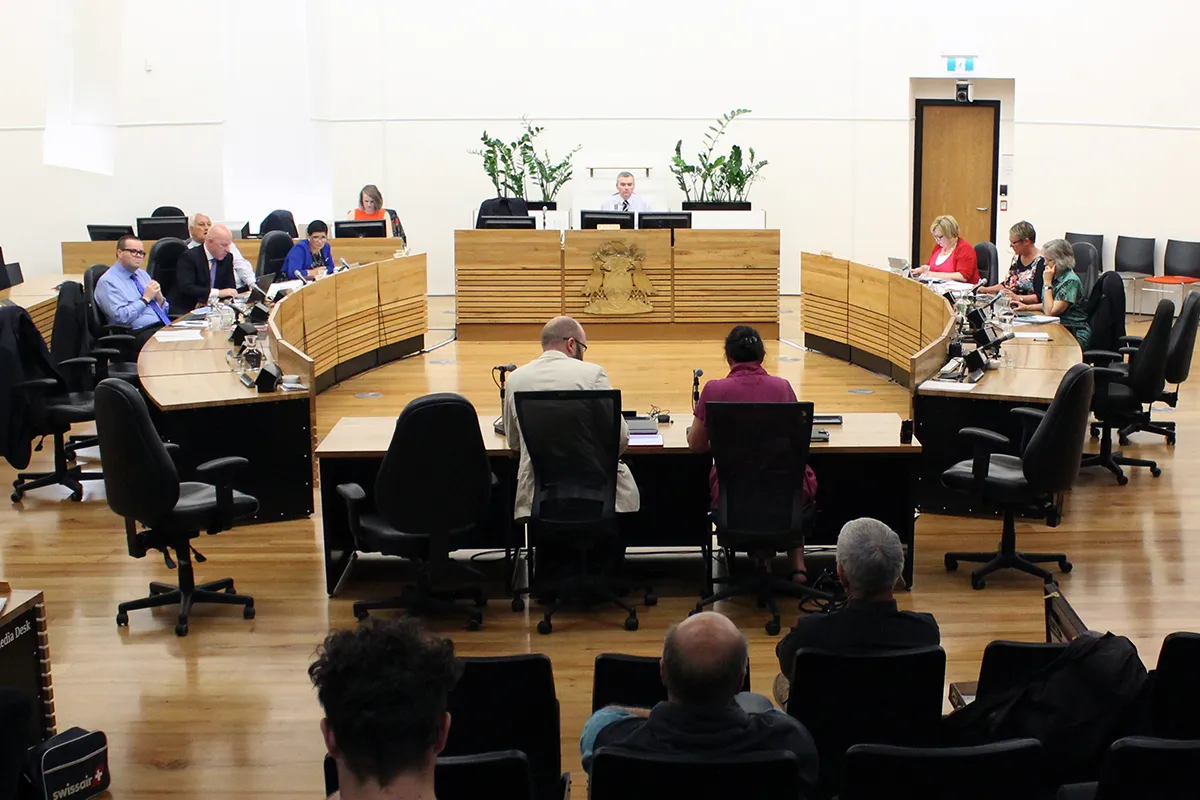Table of Contents
A recurring theme in this discussion forum is that of Local Authority rates: how high they are; how they are wasted; why they should be held at a zero increase or lowered; and so on and so forth.
Are these criticisms fair?
Rates are a sensitive topic because they hit you as one large invoice once or twice per year, rather than being silently stolen from your pay packet week by week as your income tax is or buried in every purchase as GST is.
They also seem manifestly unfair as a significant portion of a rates bill is based upon property value, rather than on a straight user-pays basis. Thus those with expensive properties pay more to drive along the same street as those who own a cheaper property next door.
So what are the options that could be used by Local Authorities to fund the services we all need and use?
The Productivity Commission listed six options in a recent report, one of which was immediately dismissed as being in the too-hard basket, a Poll Tax.

And the final results of the deliberations contained in the 300-odd page report included this recommendation:
Given the modest scope of local government in New Zealand, the benefits of a property-tax-based system, and the absence of a clearly superior alternative, rating land and property should continue as local government’s main taxing power.
We can’t find anything better so it is same-old, same-old.
So the next question is: Are Local Authorities abusing this and becoming thieving money-grubbing behemoths?

That graph would tend to indicate not, the percentages are low and fairly flat over time.
But that graph only goes back to 1993. What about a bit more history? In another report for the Productivity Commission, we find this very informative graph.

Now who are the bad guys? It certainly is not your local Councillors. As a percentage of GDP, Local Authority rates are still where they were back in 1895, approximately 2%.
Your friendly MP’s, on the other hand, have increased their stealing from your pay packet and purchasing by a factor approaching 5x. In 1895 the Government took 7%, they now grab around 35%.
Yes there are incompetent Councils in New Zealand. There is no need to name them; we all know who they are. But there are also a whole heap of other Local Authorities that do not appear in the daily news, quietly getting on doing a reasonable job for their ratepayers.
And the elected members in those Councils are not well remunerated for the hours they put in on your behalf. Those rates are publicly available here.
The Remuneration Authority, which sets the amount of the pool which is used to pay the Councillors, excluding the Mayors, assessed time required in the role of a Councillor as follows:
It was evident that in the large “metro” councils (Christchurch, Wellington, Hamilton, Tauranga and Dunedin) a councillor is likely to work up to full time – i.e. one full time equivalent (FTE). There is a second group of councils where councillor workloads sit between full time and half time, with the workload of members of the remainder of councils generally varying around or below .5% [sic] of an FTE. It must be stressed, however, that the survey returns showed that both between and within councils, work time differs, even allowing for different roles such as deputy mayor or committee chair. Many work more than a full-time job in their council role, while others apparently put in minimal effort. However, the overall pattern was sufficient for us to use as a basis for decisions.
This rather broad-brush approach needs to be compared to real-life. One Councillor put it this way:
Being a councillor is a fulltime commitment to service, in that no matter where I go in my community I am likely to be approached by community members wanting to talk about some aspect of Council rates, roads or services. I expect and am happy to give my time and attention to these residents. In addition, I willingly take phone calls from residents at times that suit them – at all hours of the day and night. I also receive many invitations to attend events across my very geographically spread ward. While these events are lovely and it is a privilege to be invited, they do take up much personal/weekend/public holiday/family time. All of this needs to be acknowledged as relevant to our remuneration level.
Remember that your local Councillors are people too, just like you. The vast majority are there to serve their local area as best they can. Granted some in the main centres are there for power and glory but the rest of the country is served by people with your interests at heart.
If you enjoyed this BFD article please consider sharing it with your friends.
Disclosure: The author serves as an elected member on a provincial Council at an effective hourly rate pretty close to the minimum wage.






